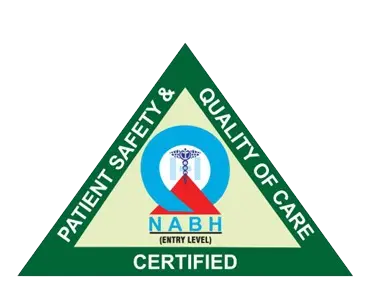“Life looks easier when you are healthy from the inside”- don’t you agree with the thought? It is quite easy to understand that until and unless you are physically and mentally fit, you won’t be able to enjoy the small moments of life.
It is essential for every human being to keep themselves physically and mentally fit so that they can live their life peacefully.
In today’s fast-paced world, many individuals neglect their physical and mental health as they prioritize other tasks, unaware of the harm they are causing to themselves.
There are multiple ways in which physical health can be improved but this is not the same when it comes to mental health.
According to the reports of The National Institute of Health, 57.8 million adults live with some form of mental illness. The severity of mental illness depends on person to person.
Some of them can do all the necessary tasks while struggling with mental illness while others get disabled due to the same.
What is Mental Illness?
Mental Illness is a psychological condition where a person is not fit mentally, emotionally, and socially. It affects your behavior, way of communication, thinking ability, reaction, and understanding ability. A person suffering from mental illness will face difficulty in coping with stress, anxiety, and mental pressure. Mental illness can be symptomatic and sometimes it may not show you symptoms.
It is possible that you may be going through depression unknowingly because you are not able to identify the symptoms.
What do you mean by mental health disorder?
Mental health disorder is a condition that affects your behavior and the way you think. They target your mood which makes it difficult for you to live and function at home, work, school, or in your neighborhood.
According to the best psychiatrists and doctors in Lucknow, mental disorders do not always impact your behavior. Your mental health may be good but because of a behavioral health disorder, you are experiencing problems.
What are the different types of disorders? What are their symptoms and their treatments?
| Disorders | Types | Symptoms | Treatments |
| Anxiety Disorder | Generalized Anxiety Disorder (GAD)
Panic Disorder Social Anxiety Disorder Specific Phobias |
Excessive worry and fear;
Restlessness or feeling on edge; Irritability; Muscle Tension; Difficulty concentrating; Sleep disturbance; |
Cognitive Behavioural Therapy (CBT)
Medication: Antidepressants (SSRIs, SNRIs), benzodiazepines (Short -term use) Lifestyle changes (Regular exercise, healthy diet, adequate sleep) |
| Mood Disorder | Major Depressive Disorder
Bipolar disorder Persistent Depressive Disorder (Dysthymia) |
Constant sadness or low mood
Loss of interest or pleasure in various activities Changes in appetite or weight Sleep disturbance Fatigue or loss of energy A feeling of worthlessness or guilt Difficulty in concentrating Suicidal thoughts |
Psychotherapy (CBT, Interpersonal therapy, psychodynamic therapy)
Medication (Antidepressants, mood stabilizers, antipsychotics) Electroconvulsive Therapy |
| Schizophrenia Spectrum and Other Psychotic Disorders | Schizophrenia
Schizoaffective Disorder Brief Psychotic disorder |
Delusion
Hallucinations Disorganized thinking and speech Abnormal motor behavior |
Medication
Psychotherapy Social and vocational training |
| Obsessive-Compulsive and Related Disorders: | Hoarding disorder
Obsessive-Compulsive Disorder (OCD) Body Dysmorphic Disorder |
Recurrent, unwanted thoughts included in obsession
Repetitive behavior or mental acts performed to reduce stress and anxiety |
CBT
Medication Support Groups |
| Post Traumatic Stress Disorder | Normal Stress Response.
Acute Stress Disorder. Uncomplicated PTSD. Complex PTSD. Comorbid PTSD |
Intrusive thoughts or memories of the traumatic event
Nightmares Flashbacks Avoidance of reminders of trauma Negative changes in mood or cognition. |
Trauma-focused CBT
Eye Movement Desensitization and Reprocessing (EMDR) Medication |
| Eating Disorder | Anorexia Nervosa
Bulimia Nervosa Binge-Eating Disorder |
Obsession with food, body weight, and shape
Extreme restrictions on eating (Anorexia) Episodes of binge eating followed by purging (Bulimia) Eating large amounts of food in a short period. |
Psychotherapy
Nutritional Counseling Medication Medical Monitoring |
Other than these disorders, various other disorders are commonly found in people such as anxiety disorders, depression, oppositional defiant disorder, conduct disorder, personality disorder, antisocial personality disorder, etc.
As per the multi-specialty hospital in Lucknow, many of these common disorders can be treated and people suffering from it can get relief from the constant mental discomfort.
In conclusion
Mental health disorders can have a huge impact on a person’s emotional and social well-being. It’s not easy to cope with stress, depression, and anxiety. Psychiatrists, family, and friends should make sure that their patient is improving and doesn’t suffer more because of mental illness.
Resources
https://my.clevelandclinic.org/health/diseases/22295-mental-health-disorders
https://www.mayoclinic.org/diseases-conditions/mental-illness/symptoms-causes/syc-20374968




